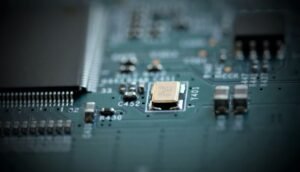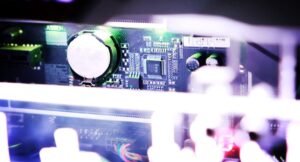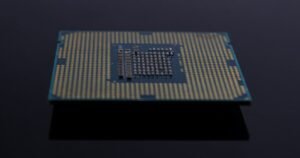AI and Automation Meaning
AI and automation are two rapidly evolving technologies that are transforming various industries. AI, short for Artificial Intelligence, refers to the development of systems capable of performing tasks that would typically require human intelligence, such as learning, problem-solving, and decision-making. On the other hand, automation involves the use of technology to perform tasks or processes with minimal human intervention.
Key Takeaways
- AI refers to systems that mimic human intelligence, while automation involves the use of technology to perform tasks.
- Both AI and automation have the potential to improve efficiency, productivity, and accuracy.
- AI can be categorized into narrow AI (specific tasks) and general AI (human-level intelligence).
- Automation can range from basic rule-based tasks to advanced machine learning algorithms.
In recent years, AI has gained significant traction with advancements in machine learning and deep learning techniques. These technologies enable AI systems to analyze large volumes of data, identify patterns, and make predictions or recommendations. *AI has the potential to revolutionize industries by enabling more precise decision-making based on data-driven insights.*
Automation, on the other hand, has been around for decades, with the goal of streamlining workflows and reducing human error. With the advancements in AI, automation has become more sophisticated and capable of handling complex tasks. *AI-powered automation can augment human capabilities and accelerate processes, leading to increased efficiency and productivity.*
AI vs Automation
While AI and automation share similarities, there are key differences between the two. AI refers to the development of intelligent systems, whereas automation focuses on the use of technology to automate tasks. *AI is about mimicking human intelligence, whereas automation is about minimizing human intervention.*
| AI | Automation |
|---|---|
| Mimics human intelligence | Automates tasks |
| Requires data and algorithms | Relies on pre-defined rules |
| Can learn and adapt | Performs repetitive tasks |
AI can be further categorized into narrow AI and general AI. Narrow AI focuses on specific tasks or domains, such as facial recognition or natural language processing, while general AI aims to achieve human-level intelligence. Despite significant advancements, general AI is still a work in progress. *The ability of AI to learn and adapt makes it particularly suitable for complex and dynamic environments.*
Automation, on the other hand, can range from basic rule-based tasks, such as automatically sending email notifications, to advanced machine learning algorithms that optimize supply chain operations. *Automation eliminates the need for manual intervention and reduces the occurrence of errors caused by human factors.*
Benefits and Challenges
Both AI and automation offer numerous benefits, but they also present certain challenges. Let’s explore them:
Benefits of AI:
- Improved efficiency and productivity
- Enhanced accuracy and precision
- Data-driven insights for better decision-making
- Automation of complex tasks
Challenges of AI:
- Privacy and ethical concerns
- Lack of transparency in black-box algorithms
- Job displacement and changing workforce dynamics
- Reliance on quality data for optimal performance
Benefits of Automation:
- Reduced human error
- Increase in operational efficiency
- Faster and consistent task execution
- Cost savings through fewer manual efforts
Challenges of Automation:
- Limited adaptability to dynamic situations
- Initial setup and implementation cost
- Potential resistance to change from employees
- Risk of over-reliance on automated processes
The Future of AI and Automation
The future of AI and automation is promising as these technologies continue to evolve and mature. With ongoing research and advancements, we can expect even greater integration between AI and automation, leading to more intelligent and efficient systems. *The combination of AI and automation has the potential to revolutionize industries and create new opportunities for innovation and growth.*
While concerns about job displacement and ethical implications remain, it is crucial to adapt and embrace these transformative technologies to stay competitive in today’s rapidly evolving business landscape. *The future success of organizations will rely on their ability to harness the power of AI and automation while ensuring responsible and ethical use of these technologies.*

Common Misconceptions
Misconception 1: AI is the same as Automation
One common misconception regarding AI and automation is that these terms are interchangeable and refer to the same concept. However, AI (Artificial Intelligence) and automation are distinct technologies with different functionalities.
- AI is a broader concept that encompasses the ability of a machine or computer system to perform tasks that would typically require human intelligence.
- Automation, on the other hand, refers to the process of automating repetitive tasks or actions through the use of technology. It does not necessarily involve simulating humanlike intelligence.
- AI often incorporates automation to enhance its capabilities, but not all automation relies on AI.
Misconception 2: AI and Automation will replace all human jobs
Another misconception is the fear that AI and automation will fully replace human jobs, leading to widespread unemployment. While AI and automation have the potential to impact various job sectors, the reality is more nuanced.
- AI and automation will likely eliminate some jobs, particularly those that involve repetitive tasks or can be easily automated.
- However, they also create new job opportunities, such as roles focused on developing and maintaining AI systems or analyzing the data produced by them.
- Additionally, AI and automation can augment human capabilities and improve efficiency in many industries, leading to new and more skilled job roles.
Misconception 3: AI and Automation lack ethical considerations
There is a misconception that AI and automation lack ethical considerations and may potentially lead to harmful consequences. However, ethical considerations are becoming increasingly important in the development and deployment of these technologies.
- Efforts are being made to ensure that AI systems and automated processes are fair, transparent, and accountable.
- Privacy and data protection concerns are addressed through regulations and best practices, aiming to safeguard individuals’ personal information.
- Companies and researchers are actively working towards developing ethical frameworks and guidelines for AI and automation to mitigate potential risks.
Misconception 4: AI is infallible and always superior to human intelligence
Contrary to popular belief, AI is not infallible, and it does not possess superior intelligence compared to humans in all aspects.
- AI systems are trained and built on data, which means they can be biased or produce inaccurate results if the data used for training is biased or flawed.
- Human intelligence encompasses skills such as creativity, critical thinking, and emotional intelligence, which AI struggles to emulate.
- While AI can excel in specific tasks and offer computational advantages, it is not a replacement for human intelligence in all areas.
Misconception 5: AI and Automation are only relevant in tech-focused industries
Many individuals mistakenly believe that AI and automation are only relevant in technology-focused industries, neglecting their broader applications across various sectors.
- AI and automation have the potential to revolutionize industries ranging from healthcare and agriculture to transportation and finance.
- In healthcare, AI can assist in diagnosing diseases and analyzing medical images, improving patient care and outcomes.
- In agriculture, automation can optimize farming processes, leading to increased productivity and efficient resource management.

AI and Automation in Healthcare
Advancements in artificial intelligence and automation continue to revolutionize the healthcare industry. From diagnosis to treatment, these technologies are transforming the way medical professionals provide care and improving patient outcomes. The table below highlights the impact of AI and automation in healthcare.
| Stat | Data |
|---|---|
| Reduction in Medical Errors | AI systems can reduce medical errors by up to 30%. |
| Medical Imaging | AI algorithms can interpret medical images with an accuracy of 90%. |
| Virtual Assistants | An estimated 60% of physicians use virtual assistants to enhance patient care. |
AI in Agriculture
The implementation of artificial intelligence in agriculture has revolutionized the way farmers manage crops, livestock, and resources. The following table showcases some interesting data on AI’s impact in agriculture.
| Stat | Data |
|---|---|
| Improved Crop Yield | AI-based systems have improved crop yield by an average of 30%. |
| Predictive Analytics | AI models can predict crop yield with an accuracy of 95%. |
| Automated Harvesting | Robots equipped with AI technology can harvest crops with 24/7 efficiency. |
AI in Transportation
The integration of AI and automation in the transportation sector has led to significant advancements in efficiency, safety, and sustainability. Check out the fascinating data in the table below.
| Stat | Data |
|---|---|
| Reduction in Accidents | Self-driving vehicles have the potential to reduce road accidents by 75%. |
| Fuel Efficiency | AI-driven systems have improved fuel efficiency by up to 20% in transportation. |
| Traffic Management | AI algorithms can optimize traffic flow, reducing travel time by 25%. |
AI in Finance
The financial industry has harnessed the power of AI and automation to drive innovation, enhance security, and improve customer experiences. Take a look at the fascinating data in the table below.
| Stat | Data |
|---|---|
| Fraud Detection | AI systems can detect fraudulent transactions with an accuracy of 95%. |
| Algorithmic Trading | Over 50% of trading activities are executed through AI-powered algorithms. |
| Customer Service | Chatbots equipped with AI handle an average of 85% of customer inquiries. |
AI and Automation in Manufacturing
The manufacturing industry has witnessed a tremendous impact from AI and automation, leading to increased productivity, quality, and cost-effectiveness. Discover the remarkable data in the table below.
| Stat | Data |
|---|---|
| Productivity Boost | AI systems have increased manufacturing productivity by 25% on average. |
| Quality Control | Automated systems have improved product defect detection by 40%. |
| Supply Chain Optimization | AI algorithms can optimize supply chains, reducing costs by 20%. |
AI in Education
AI and automation are transforming the education sector, making learning more personalized, accessible, and effective. The table below presents captivating data on the impact of AI in education.
| Stat | Data |
|---|---|
| Adaptive Learning | AI-powered adaptive learning platforms have improved student performance by 20%. |
| Virtual Reality | VR-based educational tools can increase knowledge retention by 30%. |
| Personalized Feedback | AI systems can provide instant personalized feedback to students. |
AI and Automation in Retail
The retail industry is leveraging AI and automation to create personalized shopping experiences, optimize inventory management, and boost sales. Explore the fascinating data in the table below.
| Stat | Data |
|---|---|
| Personalized Recommendations | AI-powered recommendation systems can increase sales by 30%. |
| Inventory Management | AI algorithms can reduce inventory holding costs by up to 40%. |
| Visual Search | Visual search technology can increase customer engagement by 45%. |
AI in Customer Service
AI and automation have revolutionized customer service, providing faster response times, personalized support, and improved customer satisfaction. Delve into the intriguing data in the table below.
| Stat | Data |
|---|---|
| Reduced Response Time | Chatbots can respond to customer queries in an average of 2 seconds. |
| Personalized Support | AI systems enable personalized support for over 70% of customer interactions. |
| 24/7 Availability | AI-powered virtual assistants offer round-the-clock customer service. |
AI in Entertainment
The entertainment industry has embraced AI and automation to enhance creativity, personalize content recommendations, and optimize production processes. Dive into the captivating data in the table below.
| Stat | Data |
|---|---|
| Content Recommendations | AI-powered recommendation systems can increase viewership by 35%. |
| Automated Content Production | AI can automate parts of the content production process, saving up to 40% in time and cost. |
| Emotion Detection | AI algorithms can detect viewer emotions to optimize content delivery. |
AI and automation have permeated various industries, revolutionizing operations, improving efficiency, and driving innovation. From healthcare to entertainment, these technologies have proven their transformative power. As AI continues to advance, its potential to reshape industries and society at large is limitless. Embracing these technological advancements will undoubtedly lead to groundbreaking achievements and unprecedented opportunities.
Frequently Asked Questions
What is artificial intelligence (AI)?
Artificial intelligence, or AI, refers to the development of computer systems that can perform tasks that would
normally require human intelligence, such as speech recognition, decision-making, problem-solving, and
learning.
What is automation?
Automation involves the use of technology to carry out tasks or processes with minimal human intervention. It
aims to streamline operations, increase efficiency, and reduce errors or manual labor by automating repetitive
or complex tasks.
How does AI and automation work together?
AI and automation commonly work together by integrating intelligent algorithms, machine learning, and robotics
to automate various processes. AI technologies can be used to enhance automation systems by enabling
decision-making, pattern recognition, and adaptation to changing conditions.
What are the benefits of AI and automation?
AI and automation offer numerous benefits, including increased productivity, improved accuracy, reduced
costs, enhanced safety, faster processing speeds, scalability, and the ability to handle large volumes of data
efficiently.
What industries can benefit from AI and automation?
AI and automation have applications in various industries, such as manufacturing, healthcare, finance,
transportation, logistics, customer service, agriculture, and cybersecurity. These technologies can bring
advancements and improvements across multiple sectors.
Are AI and automation replacing human jobs?
While AI and automation can automate certain tasks, they are not necessarily replacing human jobs entirely. These
technologies are often designed to augment human capabilities, improve efficiency, and allow humans to focus on
more complex, creative, or strategic tasks.
What are the challenges of implementing AI and automation?
Implementing AI and automation may face challenges such as high initial costs, integration complexities,
potential job displacement concerns, data security and privacy issues, regulation and ethical considerations,
and the need for continuous learning and adaptation.
Is AI and automation safe?
The safety of AI and automation systems depends on factors such as their design, implementation, and usage. It is
crucial to develop robust security measures, ethical guidelines, and comprehensive testing to ensure the safety
and reliability of AI and automation technologies.
What is the future of AI and automation?
The future of AI and automation holds immense potential. It is expected to further revolutionize industries,
create new job opportunities, drive innovation, improve efficiency, and contribute to solving complex societal
challenges. Continued research, development, and responsible adoption will shape the future of these
technologies.
How can businesses leverage AI and automation?
Businesses can leverage AI and automation by identifying tasks or processes that can be automated, exploring
suitable AI technologies, investing in proper infrastructure, training employees, adhering to ethical guidelines,
and continuously evaluating and refining their AI and automation strategies to stay ahead in the rapidly
evolving technological landscape.





